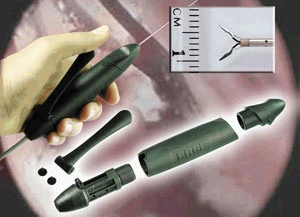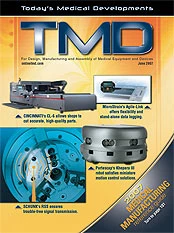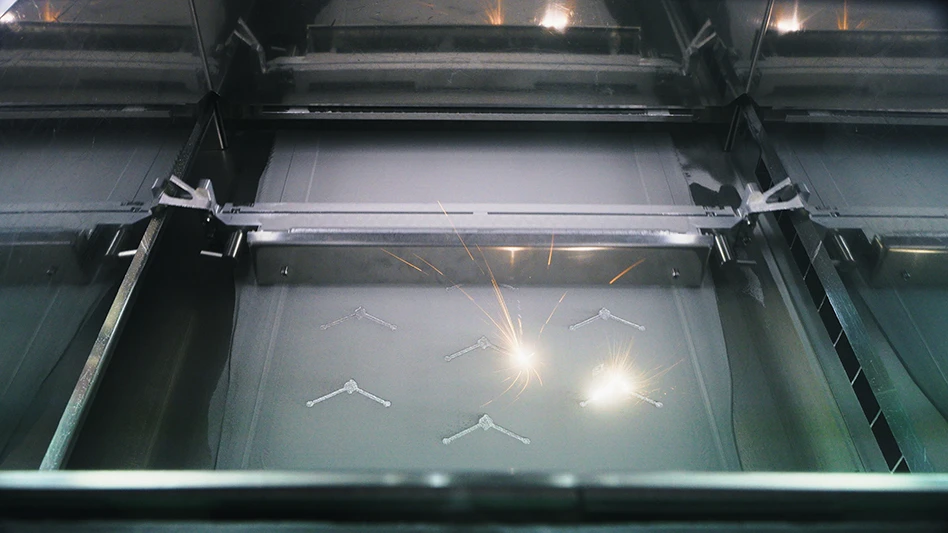
PARTS RETAIN FUNCTION, EVEN AFTER MULTIPLE STERILIZATIONS IN AN AUTOCLAVE AND EXPOSURE TO THE CLEANING AGENTS USED IN HOSPITALS AND MEDICAL FACILITIES.
The handle and working parts of the microtweezers are made of glass-reinforced DuPont Zytel for safe and easy use.
The German firm of ERBE Elektromedizin GmbH has developed microtweezers for non-invasive surgery. The microtweezers' handle and working parts are molded of glass-reinforced DuPont Zytel to ensure easy and safe use.
This is an essential requirement for instruments used in non-invasive surgery. With this operating technique, familiarly known as keyhole surgery, instruments are introduced into the body through a tiny opening in the skin to access the exact location to be treated.
The technique's benefits include smaller operation scars and more rapid healing; often, ambulant treatment suffices where earlier methods would necessitate a stay in hospital.
ERBE's bipolar microtweezer is a multi-purpose instrument: it can grasp, open and prepare the tissue as well as administer low-intensity electrical current to accelerate healing of the wound and stop the flow of blood.
The handle's individual parts include the main housing, a cable channel at the back and a holder at the front for a 1.5mm diameter metal tube; the wires, which move the tweezer jaws, pass through this tube.
The lever to operate the wires is mounted on the handle. The jaws automatically close when the instrument is not in use.
MATERIALS SELECTED AND WHY
ERBE and system supplier PEZET chose Zytel 70G30HSL. This glass-reinforced, heat-stabilized, hydrolysis-resistant grade of nylon 66 was modified through incorporation of a master batch to accept laser-marking.
Very precise parts can be molded from this high-per for mance resin. Thanks to its dimensional stability, the parts retain their functionality even after multiple sterilizations in an autoclave with superheated steam at 134°C.
Like all nylons, this type also offers long-term resistance to the cleaning agents used in hospitals and medical facilities, such as those used to flush the metal tube.
Achim Brodbeck, development engineer at ERBE, comments, "Our in-house tests of this resin confirmed DuPont's recommendation. All the parts meet the requirements of the standards for medical equipment, such as EN 60601-2-2 (safety of HFsurgical equipment) and EN 10993 (biocompatibility)."
"As long as the correct mold temperature, injection speed and injection pressure are strictly adhered to, the parts of Zytel are of very high quality and show no post-shrinkage," reports Jakob Mesam, head of design and development at PEZET. "In the design stage,we made recommendations to ERBE for the optimal gate positions and gave guidance for designing the parts so as to derive maximum advantage from the use of plastics.
"As development progressed, we reviewed part design so as to optimize processing requirements. ERBE transmitted to us the 3D files, which they had created, and we used them directly to produce the mold. As a result of this close cooperation with our customer, we could start regular production of the nylon parts for fully working microtweezers after the first mold proving."
MANUFACTURER
ERBE Elektromedizin GmbH, located at Tübingen, Germany, researches, develops and manufactures equipment and accessories for medical use. The company has subsidiaries in Europe and the USA, and representative offices in China and Russia, and employs about 450.
PEZET AG, established in 1973, has about 150 employees at its facility in Haigerloch. The company cooperates closely with OEMs to design, develop and produce systems for use in precision, electrical and other types of engineering, in pneumatics and medical equipment. The company's core competencies are in plastics and assembly technology. It also has a highly skilled mold-making shop and print shop.

Explore the June 2007 Issue
Check out more from this issue and find your next story to read.
Latest from Today's Medical Developments
- HERMES AWARD 2025 – Jury nominates three tech innovations
- Vision Engineering’s EVO Cam HALO
- How to Reduce First Article Inspection Creation Time by 70% to 90% with DISCUS Software
- FANUC America launches new robot tutorial website for all
- Murata Machinery USA’s MT1065EX twin-spindle, CNC turning center
- #40 - Lunch & Learn with Fagor Automation
- Kistler offers service for piezoelectric force sensors and measuring chains
- Creaform’s Pro version of Scan-to-CAD Application Module





